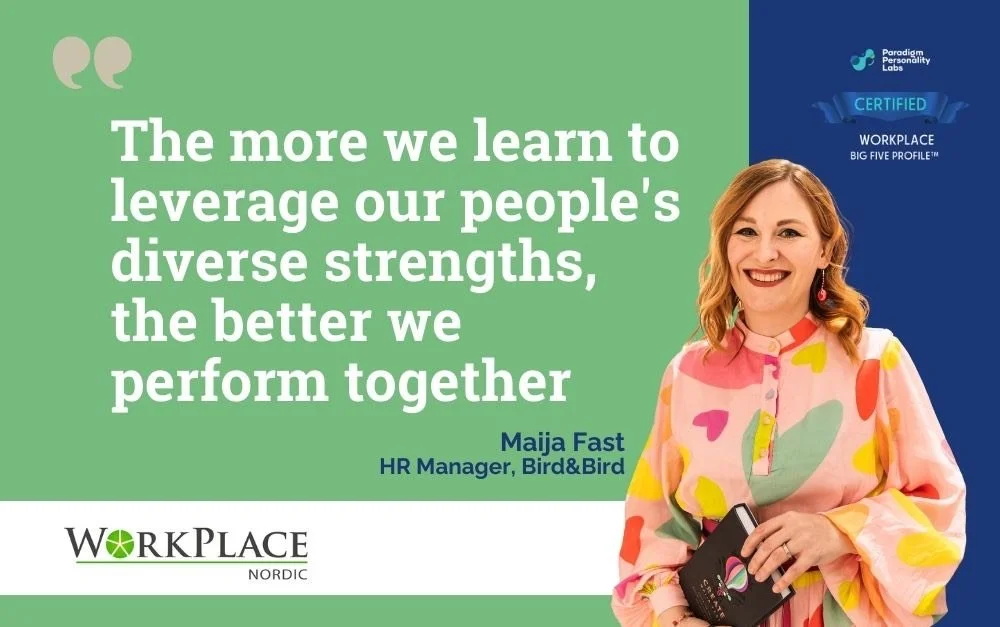Domestic abuse is a workplace issue
It has been a remarkable experience since last fall to witness the interest that Estonian enterprises have shown in the President Kaljulaid Foundation’s proposal to take a role that has never been described before in Estonia – to make our homes safer. The feedback has been fascinating. I cannot say that I am surprised about this willingness to help, knowing the sad statistics that far too many Estonians – 41% of women – have personal experience with physical, mental, and material abuse originating from daily family life. It’s only slightly less for men.
On the other hand, I am surprised – because, after all, the Estonian economy has been facing 8 quarters of economic downturn, related to various factors, some of them homegrown. This situation might make entrepreneurs feel like they have no time to contribute to anything other than survival in the mid- and long-term.
Yet, interest among Estonian businesses has been remarkable. This suggests that there must be a certain void, where HR specialists or line managers are aware of the domestic situations of some of their employees, but they lack the toolbox to handle this.
Luckily, there is absolutely no need to reinvent the wheel. Yes, societies differ, but the fabric of human relations does not. That is why it is possible to examine what Google, Amazon, Vodafone, and many others have done to help their employees – and be inspired by it. This applies both to seeking convincing arguments for CEOs or owners, if needed, and to methodologies that can be adapted to our specific needs and capabilities. The Estonian economy is an SME economy, and for SMEs, all such initiatives are far more expensive per capita.
Of course, productivity is affected by the lack of well-being of employees, regardless of the reason. Therefore, as female employment rates in Estonia are traditionally very high – as are domestic abuse counts – this is something that needs to be systematically monitored and resolved in all organizations, big and small alike. And even if responsible entrepreneurship ideas are very often overlooked in Estonian society or treated as some woke agenda, it cannot be ignored that the productivity of half of our workforce is at risk if the epidemic of violence is not dealt with.
Involving enterprises in the fight against violence is not something the government or the Ministry of Social Affairs can do. That would just be like putting an additional burden on business.
Additionally, in Estonia's social support system, a wide range of initiatives – from actively engaging individuals with special needs to implementing innovative recovery and rehabilitation methods for violence victims – are primarily led by NGOs, a trend that has persisted since the 1990s.
So, it seems only natural that the President Kaljulaid Foundation, which was founded to defend human rights and democracy, wants to support voluntary co-operation of Estonian business sector to combat domestic abuse. We want to do it together with Estonian businesses, based on academic knowledge and established methodologies. Our aim is to assist in identifying and evaluating issues, as well as contributing to their improvement.
How do we want to do it?
We are working with a group of Estonian enterprises, inspired by the positive experience of United Kingdom’s EIDA organization, to create a similar competence center for Estonian business as is EIDA in the UK. EIDA (Employers' Initiative on Domestic Abuse) is a free-to-join members' network of employers. The UK Embassy has supported our will to learn and adapt, and we hope to find supporters both among public and private sectors to help. For the moment, we are already working and thinking together with 15 rather big enterprises and some scientists here in Estonia.
To help you begin understanding why these 15 – and others in different countries – value competences such as workplace support for victims of domestic abuse, I can present some data. For example, KPMG and Vodafone conducted analyses globally in 2019 to determine the cost of employees taking time off due to domestic abuse. They also attempted to account for the loss of productivity and arrived at a stunning $13 billion per year loss due to these employee-related issues. Additionally, each victim lost an average of $2,900 personally because of unpaid leave and other issues.
In the UK, the estimated annual loss for the GDP is £66 billion. In Estonia, scientists have estimated it to be €1.1 billion. Since this problem is so prevalent, you really cannot dismiss all "defective" colleagues and simply hire new ones. The statistics are so damning that in most enterprises where there are more than three women working, someone is in need of help, is recovering from past experiences, or is expected to fall into the trap of domestic abuse sometime in the future.
Of course, those in the room closely relate to HR work in your enterprises, so you know this, even if you do not know the statistics. This is your life, your daily work – and I know you lack tools to help. But together, we can change it. Let’s do it! We deserve it, and in the face of economic downturn, the longest ever in independent Estonia, every billion helps.
And let’s not not forget: there is nothing wrong with being socially sensitive and responsible either.
Author:
Kersti Kaljulaid
Former President of the Republic of Estonia





